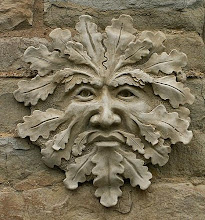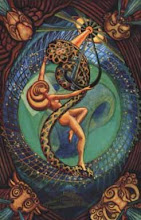Inside the vast stretch of mirrors
That have
captured me
Across lifetimes:
A torrent of reflections lain on silver roads
Paved by the roaring moon.
Glimpses of my brief figure
Distorted in this liquid journey of rippling reflections
Plowed with duplications of
shadows
Falling beneath scythes of silver rays of karma.
Rich harvests of the silhouettes of joys and terrors
Piled high upon moon-laden rafts
Where the soul, working day and night,
Is but a poor farmer of his seeds and fruit,
Finding karma a hard buyer for his merchandise
Melons and papayas upon rafts
Floated down a river like a spilled bottle of
perfume
Fruits split in half, spilling more seeds into
lambent rivers
Hundreds of moons brought to be weighed
Upon the scales of the waves
To a warehouse filled with seeds
Seeds of thoughts braided into echoes of more realities
Tied like ropes to a myriad of rafts
Moored to a spit of beach
Upon a margin of tongue unable to remember or
understand
Through the Ten Ages
Where muddy deltas of the five senses conflate to
The rivers of the deluded mind;
Only moments on which a tiny raft floats
Onward toward a vaster sea of unvarying law and dharma
Note:
AlayaVijnana is a Sanskrit word given philosophical significance by the
Yogacarra School. that means something like "storehouse consciousness. Literally, Alaya means “mooring”, or so I was told. The early Buddhist philosophers who
elaborated on this term,which was only used a few times in the
Sutras by Shakyamuni and with some reluctance, intended by it a complex
metaphor in which Alaya was both the stream of consciousness and the boat that floated down
this current, given that there was no external reality. Alaya is the storehouse of Karma, the
treasury “perfumed with the seeds” of karmic tendencies. Our personal boat is docked at this mooring
and laden with karma which is determinative on the course of our journey along the stream
of consciousness. Through this poem I
have come to clearly realize that the mind cannot be
systematized by poetry, and I actually greatly question the validity of this strain of Buddhist
philosophy. Nonetheless, it was a topic I wanted to poetically extrapolate on.

























No comments:
Post a Comment